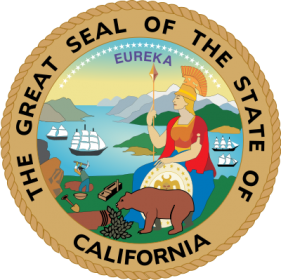California Tribes Continue Skirmish Over ‘Bad Actor’ Online Poker Provisions
The prospects for the passage of online poker legislation in California, the US’s largest state, remain as murky as ever following the issuing of new and conflicting statements regarding “bad actor” exclusions and parties eligible to provide online services.
Yesterday, Pechanga.net published the text of a letter to the two California state representatives who have currently submitted online-poker legislation in the state, Mike Gatto and Reginald Jones-Sawyer. The letter was crafted on behalf of three tribes, the Rincon Band of Luisefio Indians, the United Auburn Indian Community, and the Pala Band of Mission Indians. All three tribes and many others participated in a Rincon-hosted gathering of the Western Indian Gaming Conference (WIGC) last week, at which the ongoing California situation was front and center among the issues discussed.
The three tribes, along with 24 unidentified California card rooms, offered the legislators a bullet-point list of five items where they believe that a negotiated solution is best for all parties involved. As the tribes wrote, “We believe that these issues are essential to finding a meaningful consensus on Internet poker in California.”
Excerpted highlights from the five main points the tribes believe need a consensus, in order for online poker legislation to move forward:
• Eligible entities — The tribes support the approach of Jones-Sawyer’s AB 167 in “permitting horse racing associations to be eligible for Internet poker operator licenses on the same terms as eligible tribes or card rooms.” This comes with the caveat that horse racing associations may be assessed further licensing fees, which would then be split among other eligible licensees (the tribes and card rooms).
• The “bad actor” ban — Proposes that the ban is limited to people who had “personal participation in unauthorized gaming.” As the tribes continued, “This approach strikes a balance between the state’s need to ensure that persons who willfully defy gaming laws not be permitted to jeopardize the integrity of Internet poker in California, while recognizing that control of an entity may change over time in a way that resolves regulatory concerns. If a company that engaged in unauthorized gaming changed ownership, regulators would be able to review the effect of that change in ownership under the bill’s standards.” In the prominent PokerStars example, for instance, that would mean that a Stars-related ban might apply only to those Stars owners and executives who were involved with the company during the years it allegedly offered “unlawful” services to US players.
• Tainted assets, as in the purchase of PokerStars by Canada-based Amaya — The three tribes and 24 card rooms acknowledge the issue’s importance, but punted it down the road. Wrote the tribes, “We recognize that this is an important issue that remains to be resolved, with different approaches reflected in your respective bills. While we have not yet identified a possible consensus position, we encourage continued conversation on this important issue to identify an approach based on considerations of fairness, regulatory integrity, and legal requirements at issue.”
• Ten-year licenses — That’s what the Gatto bill proposes, while the Sawyer-Jones bill proposes four-year licenses that the tribes are generally against.
• Two years of prior gaming experience — The three tribes and 24 card rooms believe that a minimum period of prior industry experience and reputable service remains vital for consideration for licensure.
The three tribes’ statement moves them away from the hard-line stance regarding the “bad actor” stance maintained by the Pechanga, Agua Caliente and several other tribes, who want California’s online-poker market to be as exclusively tribes-only as possible — no horse racing licensees, no PokerStars, maybe not even any smaller tribal gaming concerns. Those tribes’ position have effectively prevented online-poker legislation from moving forward, due to the lack of a consensus being built that could overcome general anti-online gambling sentiment elsewhere in the state.
The Rincon, UAIC and Pala tribes, however, were formerly part of the 12-tribe coalition that stood resolutely against PokerStars, suggesting that support for the Pechanga hard-line position continues to erode. Whether or not the positions taken in this letter indeed become the groundwork for a consensus solution, the fact that there is some movement on the topic is good news indeed for the prospects for California online poker.





















COMMENTS